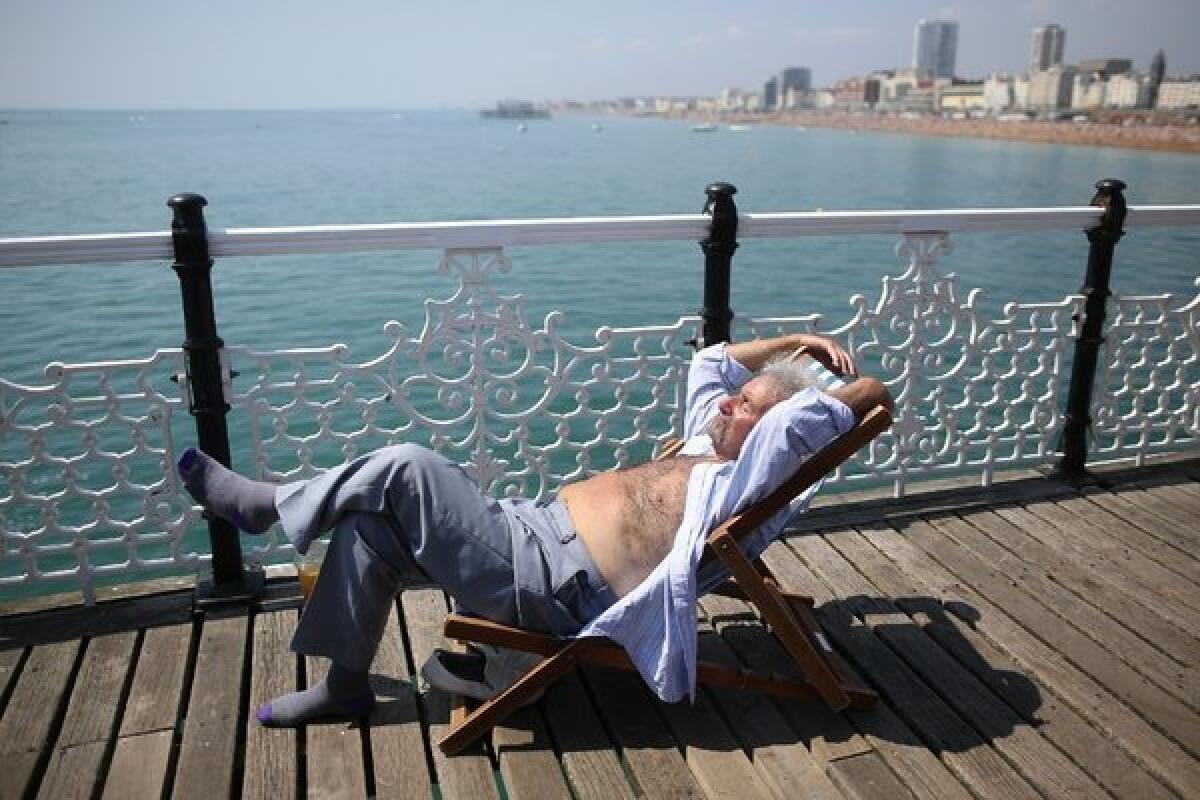Low testosterone: A disease to be treated or market to be tapped?

If you’re a middle-aged guy who watches sports, news or late-night talk shows, you’ve seen the ads: Your flagging energy levels, mood, sports prowess and libido ... could they be caused by low T?
After you figure out that T stands for “testosterone” -- a magically powerful male hormone the shortage of which you would never want to admit to -- you say to yourself, “Oh my God, maybe it is low T!” And if you then go to the website mentioned in the ads and take a quiz, you’ll quickly learn that there is a treatment for low T, one that you can ask your doctor about.
Now you feel the relief borne of knowing that what you “have” could have been a consequential blow to your manhood, but with manly action, those consequences can be averted.
That you have been ensorcelled by a “disease awareness campaign” funded by AbbVie, the maker of the leading testosterone replacement product, AndroGel, might not be immediately evident to you. Indeed, it might not have occurred to you that those symptoms that struck such a resonant chord with you are also all normal signs of aging.
And you are clearly not alone. The industry newsletter Medical Marketing and Media reported in April that more than 3 million prescriptions were written for AndroGel in 2012, yielding its maker $1 billion in sales.
A commentary published this week in the journal JAMA Internal Medicine calls the “low T” campaign a template for how to sell a disease -- and its cure -- to a potentially huge market. First, says its authors, lower the bar to diagnosis; second, raise the stakes by suggesting that failure to get treatment could have dangerous consequences; third, spin the evidence that suggests that the solution you have to sell will be beneficial and largely free of risks.
“Whether the campaign is motivated by a sincere desire to help men or simply by greed, we should recognize it for what it is: a mass, uncontrolled experiment that invites men to expose themselves to the harms of treatment unlikely to fix problems that may be wholly unrelated to testosterone levels,” write Drs. Lisa M. Schwartz and Steven Woloshin in JAMA.
Schwartz and Woloshin are Dartmouth Medical School physicians who often play the role of watchdogs over scientific and pharmaceutical industry shenanigans.
They say that when it comes to diagnosing a shortage of testosterone in a patient, a typical primary care physician -- or even an endocrinological specialist -- has little firm guidance on which he or she can rely. Between perfectly healthy and clearly ill is a vast terrain in which lines at which treatment is warranted haven’t been drawn, they write. Worse still, the specialists drawing those lines over the coming years may have veiled commercial stakes in expanding the population of patients that should be candidates for treatment.
As for what’s at stake for patients, the sellers of the “low T” disease may be free to play fast and loose with research evidence as well, write Schwartz and Woloshin. Research showing that low T increases the risk of heart disease may conflate one risk of aging -- the development of heart disease -- with some of the symptoms common to both low T and aging, including low energy, loss of muscle mass and bone strength. And that claim flies in the face of a 2010 study of testosterone therapy in older men that was halted early because the treatment appeared to increase the risk of heart disease.
At the same time, Schwartz and Woloshin write that physicians and patients “may be surprised” by the modest effects that testosterone replacement had on men who took it. The low T disease awareness campaigns appealed to men with complaints ranging from fatigue, muscle loss and low libido. But clinical trials showed that testosterone replacement therapy has inconsistent or no benefits for weight, depression or lower extremity strength and modest benefits in lean body mass and body fat, libido and sexual satisfaction. (It does also improve grip strength.)
What’s not known is whether those benefits will outweigh the potential risks of testosterone therapy if lots of men and their physicians decide that low T is a problem that requires treatment. In a large enough patient population, it’s biologically plausible to imagine that widespread testosterone use could increase heart attacks, strokes, blood clots and prostate cancer.
That is, after all, pretty much what happened after similar disease awareness campaigns convinced millions of menopausal women that hormone replacement therapy was needed to treat what for many were normal signs of aging, write Schwartz and Woloshin. (Just replace “prostate cancer” with “breast cancer.”) That is a lesson about disease awareness campaigns that should be heeded, they say: These campaigns often create large patient populations, long before the balance of benefits and harms in a large population has been toted up.
“Before anyone makes millions of men aware of low T, they should be required to do a large-scale randomized trial to demonstrate that testosterone therapy for healthy aging men does more good than harm.”
[For the Record, 3:03 p.m. PDT Aug. 14: An earlier version of this online article said that Abbott Laboratories was the manufacturer of Androgel. Although Abbott made the product up until the end of 2012, in January it spun off an independent company, AbbVie, which now makes and markets Androgel.]







